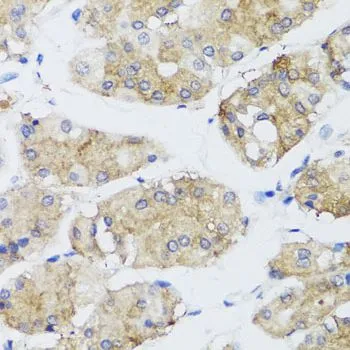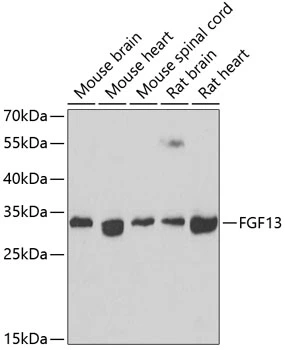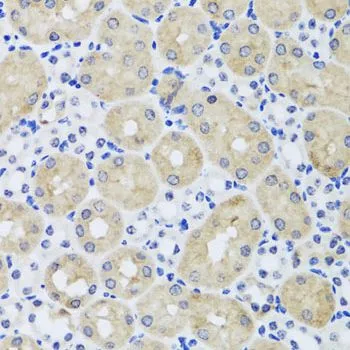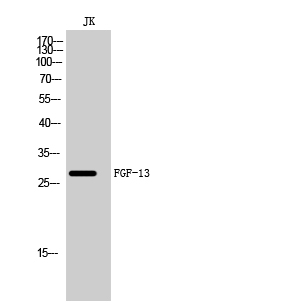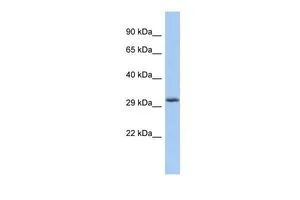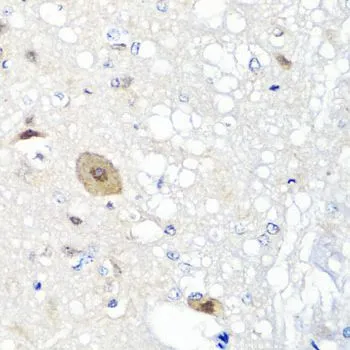
IHC-P analysis of rat brain tissue using GTX55620 FGF13 antibody. Dilution : 1:100
FGF13 antibody
GTX55620
ApplicationsWestern Blot, ImmunoHistoChemistry, ImmunoHistoChemistry Paraffin
Product group Antibodies
ReactivityHuman, Mouse, Rat
TargetFGF13
Overview
- SupplierGeneTex
- Product NameFGF13 antibody
- Delivery Days Customer9
- Application Supplier NoteWB: 1:500 - 1:2000. IHC-P: 1:50 - 1:200. *Optimal dilutions/concentrations should be determined by the researcher.Not tested in other applications.
- ApplicationsWestern Blot, ImmunoHistoChemistry, ImmunoHistoChemistry Paraffin
- CertificationResearch Use Only
- ClonalityPolyclonal
- ConjugateUnconjugated
- Gene ID2258
- Target nameFGF13
- Target descriptionfibroblast growth factor 13
- Target synonymsDEE90, FGF-13, FGF2, FHF-2, FHF2, LINC00889, XLID110, fibroblast growth factor 13, fibroblast growth factor homologous factor 2
- HostRabbit
- IsotypeIgG
- Protein IDQ92913
- Protein NameFibroblast growth factor 13
- Scientific DescriptionThe protein encoded by this gene is a member of the fibroblast growth factor (FGF) family. FGF family members possess broad mitogenic and cell survival activities, and are involved in a variety of biological processes, including embryonic development, cell growth, morphogenesis, tissue repair, tumor growth, and invasion. This gene is located in a region on chromosome X, which is associated with Borjeson-Forssman-Lehmann syndrome (BFLS), making it a possible candidate gene for familial cases of the BFLS, and for other syndromal and nonspecific forms of X-linked cognitive disability mapping to this region. Alternative splicing of this gene at the 5 end results in several transcript variants encoding different isoforms with different N-termini. [provided by RefSeq, Nov 2008]
- ReactivityHuman, Mouse, Rat
- Storage Instruction-20°C or -80°C,2°C to 8°C
- UNSPSC12352203

